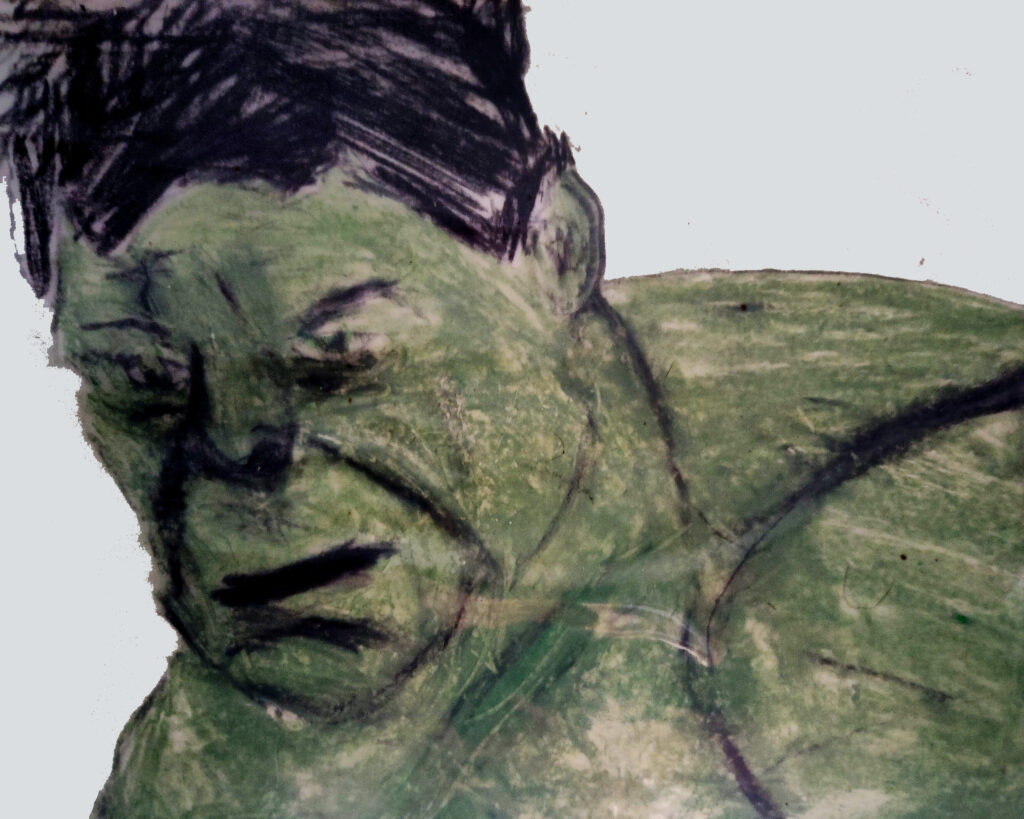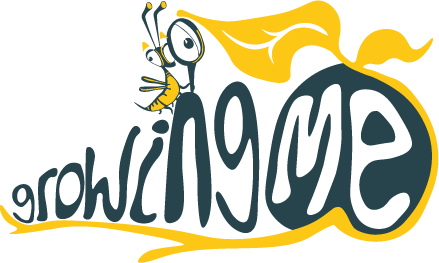
Hulk – why he’s important as well as incredible!
Anger can be such a hot topic… especially at this festive time of year
And here, as a fantastic epitome of anger, is The Incredible Hulk, expertly drawn by Nicky’s talented child
Hulk is a really important character for loads of children
When I was a therapist, supporting children and families affected by cancer, Hulk was often the first toy a child picked up. A scary and oversized, green and muscular figure, Hulk towered above the other toys in the sand-tray. Hulk did what other toys could not, he was the uncontrolled and furious anger of grief that society doesn’t like to see.
When we think of grief, we often see anger as a valid part of the process. As time passes, anger will fade. We move through the phases and we reach acceptance – or so the theory goes.
Care-experienced people are grieving too
for the loss of birth-parents, and of siblings
for the loss of safety in chaotic early years that can never be relived
for for loss of attachments with forgotten foster families
for the loss of innocence and a care-free childhood.
For children who have experienced such losses it can be hard to move to a place of acceptance. Anger can often lurk just beneath the surface for people who have suffered early life trauma. This makes sense, although it is often confusing for families and carers in the moment.
Primarily, anger keeps danger and threat away. It is a vital force that protects and defends the vulnerable, and it has the same service in our psyches. Anger powerfully pushes away painful emotions… from feelings of sadness and loss, vulnerability and fear, to terror, confusion and despair.
It is no wonder that anger is part of the grieving process, nor is it that children who have experienced early life trauma tend to get angry more often than children who have not.
In the Marvel comics, Hulk is the alter-ego of mild-mannered Dr Banner. He eventually becomes Professor Hulk, able to wield the power of The Infinity Gauntlet, the key to saving the universe. This transformation does not come easily or quickly but is the result of Dr Banner’s courageous turn towards Hulk, his own shadow. As he gets to know and accept his own, previously unbearable feelings Hulk not only becomes easier to control he becomes an essential part of the ultimate hero, a powerful energy alongside a skillful mind.
This process of transformation, so brilliantly told in Hulk’s journey, is a powerful message for all of us, especially those who care for children. Anger does an important job – it protects against feeling painful emotions – so we are wise to respect it, though not necessarily the way it is expressed. It is important to separate actions from feelings, because whilst a behaviour might be dangerous and need to stop, the motivation behind the behaviour can still be respected and cared for.
There is no denying that Hulk did a lot of damage. But he caused that harm because mild-mannered Dr Banner denied his own power, pushing it into shadow where it became Hulk – dangerous and out of control. We can help our children’s anger come into the light by accepting it as an important and vital energy. We can help them understand that anger is normal and can fuel us to do incredible things. We can help them see that moving this energy through our bodies can help us move, can help us run, drum, and be creative in many ways. We can help our children think about what makes them angry, and about what changes can be made in their lives and those around them.
Growing Me welcomes our children’s angry, destructive parts with The Rip-Me leaves.
Every session ends, not only by celebrating the positives, but by providing a physical place for difficult feelings that invite the power of Hulk to rip, shred, and tear thick cardboard into tiny little pieces. We suggest that these pieces be stuck in a child’s Wonder Book as a regular reminder that every single part of them is welcome. From the excited and wonder-filled, to the confused, scared, or angry.

